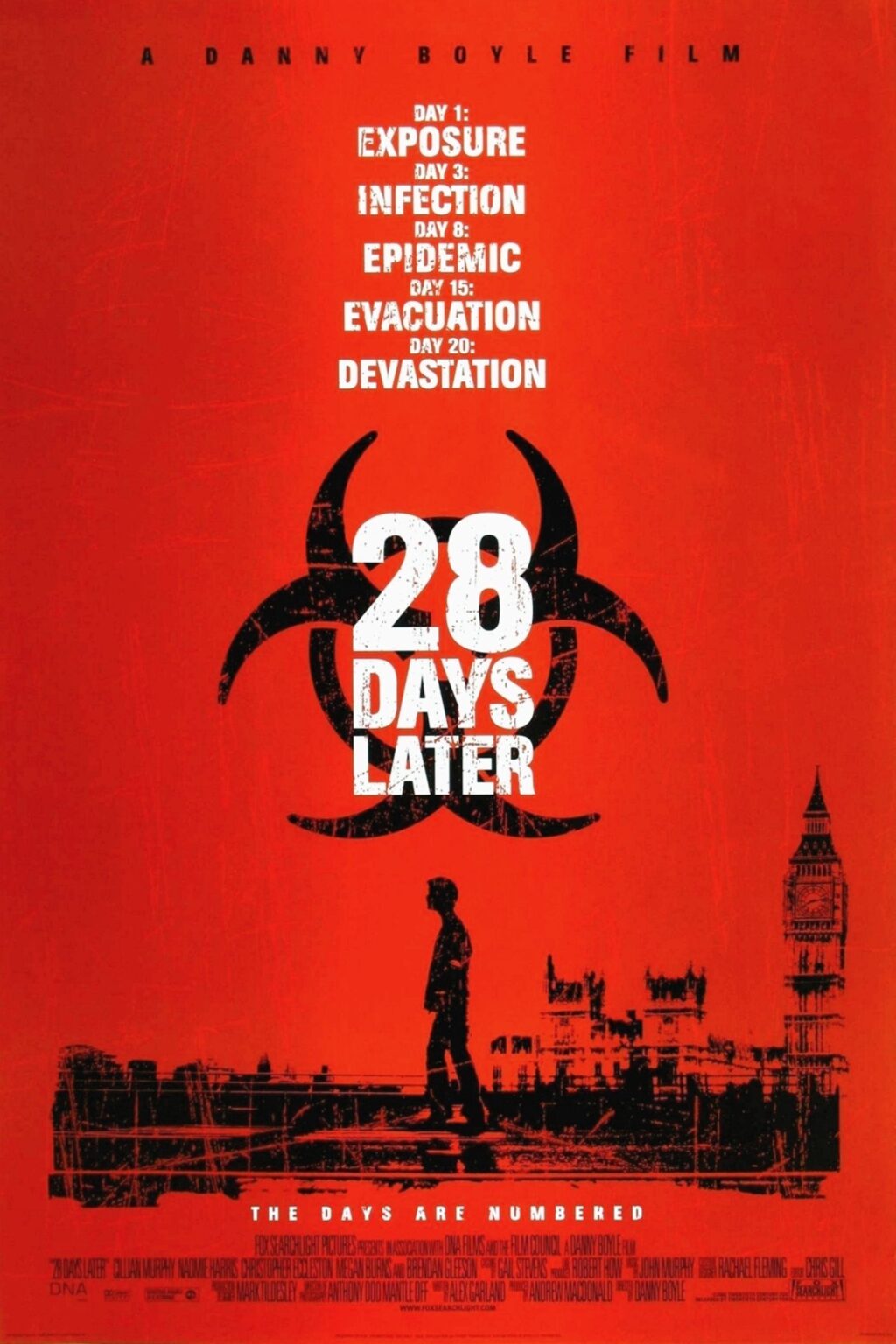
Introduction: The Importance of 28 Days Later
’28 Days Later,’ released in 2002, marked a significant turning point in the horror and post-apocalyptic film genre. Directed by Danny Boyle and written by Alex Garland, the film revitalized interest in zombie narratives and introduced a new form of horror that resonated with both audiences and critics alike. Its unique approach to the zombie apocalypse, incorporating themes of societal collapse and human survival, has cemented its status as a contemporary classic.
Major Themes and Innovations
One of the notable innovations of ’28 Days Later’ is its use of fast-moving infected, which differs significantly from the traditional portrayal of zombies as slow and lumbering. This shift not only heightens the suspense and horror but also transforms the monsters into a palpable threat to the characters and viewers. The film’s depiction of a virus outbreak, the Rage virus, offers a chilling metaphor for real-world fears, making it feel particularly relevant in today’s context, especially in light of the global pandemic caused by COVID-19.
The narrative follows Jim, played by Cillian Murphy, who wakes up from a coma to find London nearly deserted. The film explores themes of isolation, survival, and the fragility of civilization as Jim encounters other survivors while navigating a world overrun by the infected. The decisions characters must face—such as whether to help others or prioritize their own survival—highlight the moral dilemmas that arise in extreme circumstances.
Cultural Impact and Significance
’28 Days Later’ not only reinvigorated the zombie genre but also influenced numerous films and television series that followed, such as ‘The Walking Dead’ and ‘World War Z.’ Its gritty cinematography, characterized by handheld camera work and a desaturated color palette, contributed to a sense of realism that resonated with viewers. The film’s success demonstrated that horror films could convey deeper social commentary while still thrilling audiences.
Moreover, ’28 Days Later’ has garnered a dedicated fanbase and remains a topic of discussion in film studies, academia, and pop culture, showcasing its lasting relevance. The film’s successful blending of horror, drama, and philosophical exploration reflects its depth and invites viewers to engage with it on multiple levels.
Conclusion: The Lasting Legacy of 28 Days Later
As we reflect on ’28 Days Later,’ it is clear that its impact goes beyond mere entertainment. The film’s captivating narrative and its exploration of human nature in catastrophic scenarios leave audiences questioning what they might do in similar situations. Its contributions to the horror genre continue to influence filmmakers, ensuring that ’28 Days Later’ will remain a cornerstone in cinematic history for years to come.



